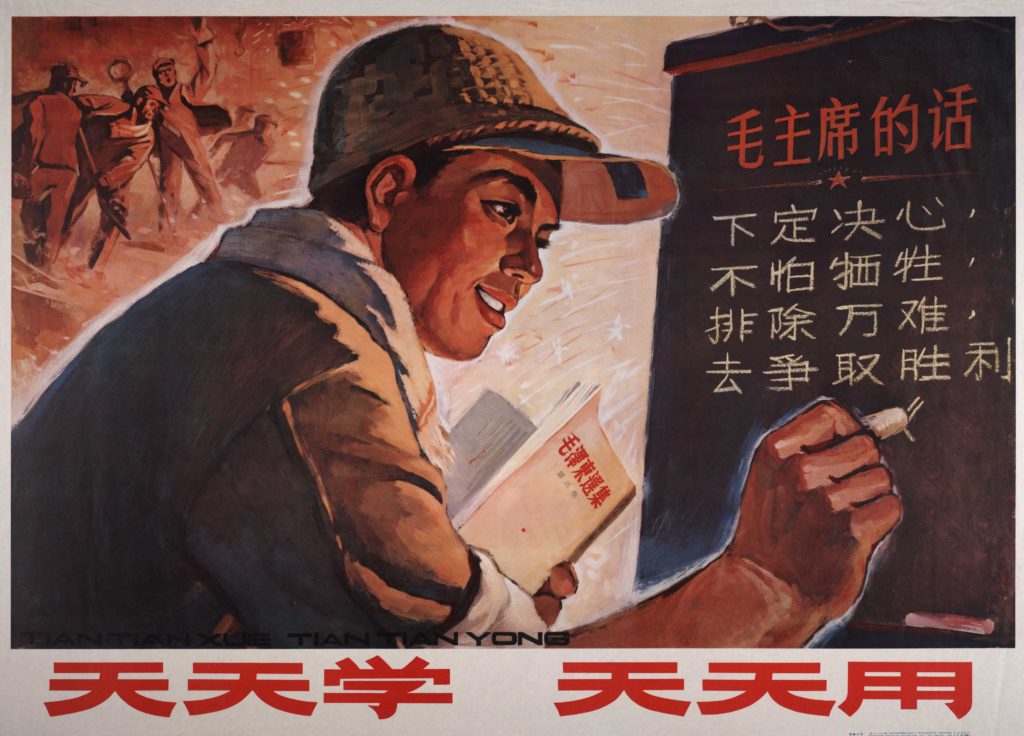[Transcribed from a talk between Mo Yan and Chen-ning Yang, moderated by Fan Zeng, that took place Wednesday May 15th at Peking University.]

范曾:杨振宁先生曾经说过,科学家从来都不能发明,他只是在不断发现。我想问莫言兄,您是在发明创造,还是有另一种途径?
Fan Zeng: Chen-Ning Yang once said, “Scientists have never been able invent anything, all they are doing is discovering [that which already exists].” I want to ask Mo Yan, is your writing an act of invention, or do you use another method [to create your work]?
莫言:我想文学创作和科学发现有很多共同的地方,也有一些不同。文学家关注的是人,科学家关注的是物;文学家探讨的是人类的情感,科学家关注的可能是物质的原理。所以同样一个事物在文学家和科学家的眼睛里可能就不一样。我记得鲁迅曾经说过,我们一般人看到的鲜花就是美丽的花朵,但是在植物学家眼里就变成了植物的生殖器官。
Mo Yan: I think the creation of literature and discovery of [new] science have a lot things in common, and they also have some differences, too. Writers pay attention to people, scientists pay attention to things; writers delve into human emotions, scientists pay attention to the principle of matter, I suppose. So it’s possible that the same object viewed through the eyes of a writer and a scientist doesn’t [appear] the same. I remember Lu Xun once said, “When most people look at flowers, all they just see are beautiful blossoms. But through the eyes of a botanist they become the reproduction organs of plants.”
但在创造的过程当中它们也有很多共同的地方。严格地说作家的创作也不是无中生有,作家在作品里塑造的所有人物也都是现实当中的人物经过想象、加工后的综合,但他确实又不能跟生活中的任何一个人物对上号,他是属于作家的一种文学创造。所以我觉得这是文学比物理学、化学稍微自由一点的地方。
But in the process of creation they also have a great deal of things in common. Strictly speaking, writers don’t ‘create life from nothing’, [because] all of the characters that a writer gives form to in his works are composites of real people who have been passed through [the writer’s] imagination and embellishing, but they really can’t be matched to the name of any living person, either. They belong the writer’s act of literary creation. So to my way of thinking, in this literature is somewhat freer than physics or chemistry.
范曾:我觉得自由得多,尤其莫言兄你的笔就像一支魔笔,神奇幻化,而且给人一种更加真实的感觉。这是我的感受。那谈到风格,文学家的风格是没话说的,科学家的风格怎么体现?科学家和文学家的风格有什么区别?
Fang Zeng: I think it is much freer, especially [the writing from] your pen. [Your pen is] like a magic pen, it affects miraculous transformations while giving people a even more realistic feeling. That’s my impression [at least]. So, while we are on the subject of style, [the fact that different] writers have [distinct] styles goes without saying, [but what about] a scientist’s style? What is stylistic differences exist between scientists and writers?
杨振宁:我想是有区别的。这和前几分钟你问的问题也有密切关系,就是发明跟发现的关系。不管在科学、文学、艺术里,发现跟发明的界限都不是完全清楚。可是我想底下这句话是有道理的,科学里发现的成分比文学里少一点。我可以把这句话从另外一个方向再讨论一下,我知道莫言喜欢写幻想文学,有没有幻想科学呢?我想没有,科学是猜想的学问,不是幻想的学问,幻想的科学我觉得是没有出路的,因为科学所要了解的是一些已经有的现象。没有人类的时候就已经有电、有磁了,科学家要想了解宇宙结构,这就需要想象、需要猜,这跟文学的幻想是很不一样的。我不晓得莫言同不同意我的说法。
Chen-Ning Yang: I think that there are differences. This is closely related to the question you asked a few minutes ago, regarding the relationship between invention and discovery. It doesn’t matter if you are a scientist, a writer, an artist, the boundary between discovery and creation isn’t fully apparent [in any of these fields]. But I think the following makes a lot of sense: the amount of discovery that occurs in science is slightly less than in literature. To approach this idea from another direction, I know that Mo Yan likes to write ‘fantastic tales’, is there such a thing as
‘fantastic science’? I don’t think there is, [because] science as a branch of learning is based on conjecture and not fantasy. I think fantastic science is a dead end, because what science wants to understand is phenomena that already exist. Before humanity existed, there was already electricity, magnetism existed [too]. Scientists want to understand the structure of the universe [and] you need imagination for this, you need conjecture, this is really different from the fantasy [employed] in literature. I don’t know if Mo Yan agrees with my opinion on this or not.
莫言:我当然同意。文学家确实需要幻想,我们也知道文学当中还有个重要的门类叫科幻文学,拥有大量读者。其实很多作家并不具备物理学、天文学的知识,但他依然可以在他的小说里进行描写。我记得很早之前我看过蒲松龄的小说《雷操》,写了一个书生从天上摘下星星的故事,这种描写在文学中还有很多。其实文学作品的想象建立在生活经验的基础上,科幻作家的则建立在一定的科学知识之上。文学幻想和科学家猜想的区别更大,它是建立在一定的生活经历之上,再去想象、类推的。
Mo Yan: Of course I agree. Writers really do need fantasy, we also know that there is a significant genre of literature called ‘science fiction’, with a large number of readers. Actually, many writers really don’t know anything about physics or astronomy, but they can still describe [these things] in their novels. I remember reading Pu Songling’s short story ‘Conductor of Thunder’ a long time ago. It’s a story about a scholar who plucks the stars [down from sky]. There are a lot of these sorts of descriptions in literature. Really, works of literature are built on the foundation of one’s experiences in life, and so science fiction authors build atop a certain amount of scientific knowledge. The difference between literary fantasy and the conjecture of scientists is larger [because literary fantasy] is built atop a certain amount of life experience, followed by [the addition of] imagination and analogy.
[Source: http://edu.people.com.cn/n/2013/0516/c1053-21498137.html, accessed 18/5/2013]
Apparently just after this transcript cuts out, Mo Yan mentions Liu Cixin. The best I can find is the following snippet from an article on China Daily:
“科学中发现的成份比文学少,文学中发明的成份比科学多,”杨[振宁]说。
The amount of discovery that occurs in science is more than that which occurs in literature, [and] the amount of invention which occurs in literature in more than that which occurs in science,” [Chen-Ning Yang] said.
莫言就给杨振宁讲科幻文学。讲蒲松龄《雷曹》的故事,还夸刘慈欣的《三体》写的好。莫言在去年在斯德哥尔摩领奖时,就谈及蒲松龄对他的文学影响极启发。
In response Mo Yan talked to Chen-Ning Yang about science fiction. He told Pu Songling’s story ‘Conductor of Thunder’ and he also complimented Liu Cixin’s _Three Bodies_, [saying that] it was well written. Mo Yan had already talked about the influence and inspiration Pu Songling[‘s writing] gave to his writing during his acceptance speech in Stockholm last year.
[Source: http://www.chinadaily.com.cn/dfpd/2013-05/16/content_16503195.htm, accessed 18/5/2013]

